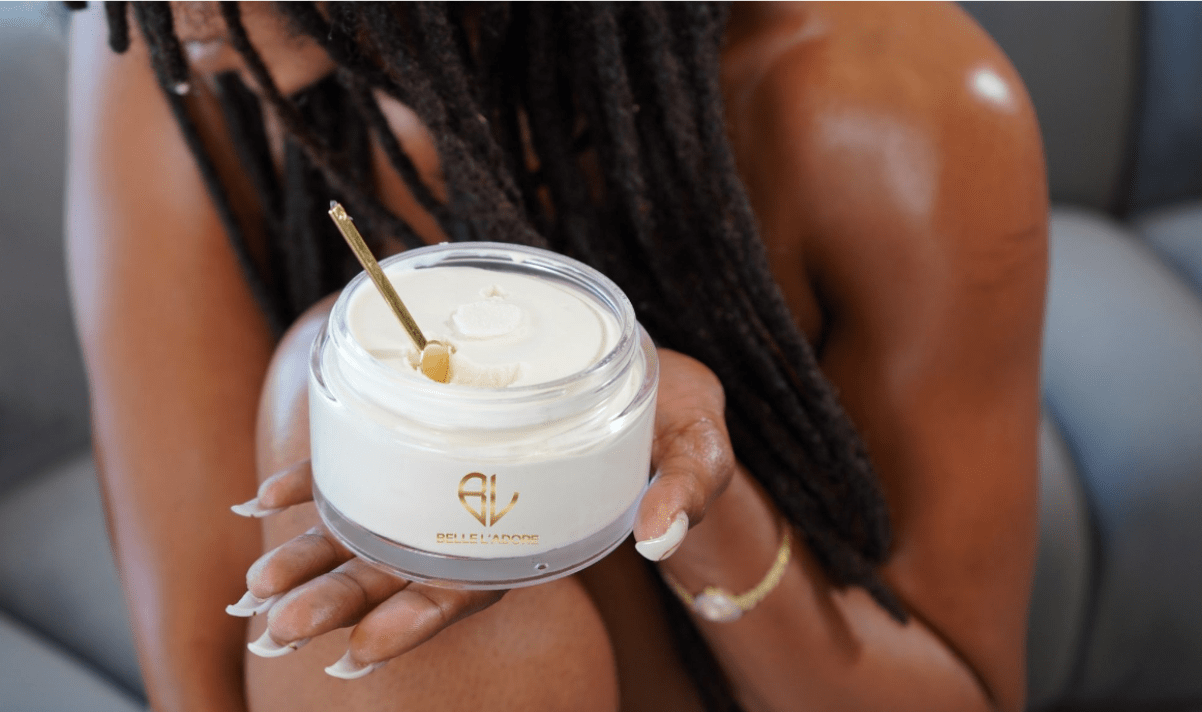Lifestyle
The Story of Belle L’adore and its Natural Products

Beauty, they say, is only skin deep. But Marcella Guidry wondered, “Why stop there?” With her skincare brand, Belle L’adore, she bottled nature’s bounty. The results are natural products that offer a luxurious and effective solution to common skincare woes. From its humble beginnings to its current status as a rising star in the skincare industry, Guidry’s brand is proof of how perseverance and passion pay off.
Birth of Belle L’adore
Guidry, the founder of Belle L’adore, spent 10 years researching and developing her product line. She began with a simple yet profound goal: to create luxurious yet natural skincare products. This decade-long dedication to perfecting her formulas has resulted in a range of products flying off the shelves.
People of all skin types can use Belle L’adore and see results. However, it shines for those with sensitive skin, a market often overlooked by big skincare brands.
The spark that ignited the brand was Guidry’s quest to soothe her daughter’s sensitive skin. Frustrated by the lack of suitable options in the market, she took matters into her own hands. “Through trial and error, I developed products that were safe for my daughter and are incredibly effective. It was a lot of work, but it was worth it in the end,” Guidry shares.
The brand’s focus on quality is evident in every aspect of its production process. Each product is handmade, guaranteeing that every batch meets the highest standards. This artisanal strategy allows Belle L’adore to offer consumers a trustworthy skincare experience.
Its best-selling product, the Body Butter, embodies this philosophy. Rich in natural moisturizers and free from irritating chemicals, it provides deep hydration and relief for flare-ups.
“I have kept the liquid butter at my work desk for the past three months. I use it several times a day to keep my hands moisturized as I work, and I am barely one-third of the way through the bottle! I love the feeling,” shares one user.
Handpicked Ingredients
Belle L’Adore prides itself on using unrefined organic oils and beneficial butter carefully selected for their efficacy. Ingredients such as shea butter, kokum butter, and coconut oil are chosen for their moisturizing properties and ability to soothe and heal sensitive skin.
Notably, Belle L’adore avoids fillers, water, and harmful chemicals. “Our products are very concentrated but still very gentle—something hard to find today. This enhances their performance and aligns with the growing consumer demand for clean skincare solutions,” Guidry shares.
Belle L’adore’s Plans for the Future
The brand has ambitious growth plans as it expands its product line, introducing new formulas that continue to meet the needs of its sensitive skin customers.
“It took us over a decade to perfect our current products, so you can bet the new ones will be just as meticulously crafted,” says Guidry. Beauty, as they say, is in the eye of the beholder—but with Belle L’adore’s future lineup, it might just be in the eye cream.
Lifestyle
Powerful Corporate Gifting Strategies to Build and Strengthen Business Partnerships

If you want to build and strengthen business partnerships with your clients and top investors, there are a few key steps you must take. One essential strategy is corporate gifting. This simple act goes beyond building a partnership. It will also increase your customer retention rate and promote your business even beyond the shore of your country.
But before you consider gifting any item, there are some strategies to put in place. This will ensure your gift makes a lasting impression and resonates well with your clients. Below are powerful corporate gifting strategies to build and strengthen business partnerships with your clients and top investors.
Choose a Personalized Item
Rather than choosing an ordinary gift for your clients and investors, opt for a personalized item. Customised corporate gifts such as T-shirts, coffee mugs, and bags create a stronger emotional connection than generic gifts. They also leave a more lasting impression than most other gift types.
Imagine how investors and your clients will feel when you beautifully inscribe their image or favorite quotes on a T-shirt. Of course, they will feel valued, appreciated, and ready to invest more in your business.
Consider Their Culture and Background
As an entrepreneur, it’s essential to be culturally competent and sensitive. Your gifts should resonate with your clients’ and investors’ cultural backgrounds. Otherwise, they may be quickly discarded or overlooked. If your investors and audience are predominantly of Black heritage, consider giving them a custom T-shirt featuring a map of Africa or inspirational quotes from iconic Black leaders.
Their religious beliefs are also important. Specific religions may find some images or symbols inappropriate. For instance, if you’re giving a gift to a Muslim investor, avoid designs that include images like pigs, as they are considered offensive in Islamic culture.
Consider a Functional Gift
You should also consider the gift’s functionality. A gift that can be used every day will be more valuable than an impractical one. Even if the gift is expensive but doesn’t have any functional purpose, it won’t serve the purpose it was intended for.
Instead of purely sentimental keepsakes or abstract gifts, consider practical items like pens, notebooks, backpacks, coffee mugs, umbrellas, or water bottles. Just make sure the gift is well-designed and features your brand logo and identity. This not only increases brand visibility but also helps strengthen the connection between you and your investors.
Tie it to a story
Tie your gifts to a story to make them more memorable and emotionally meaningful. For example, if during your business’s early days, your employees always worked tirelessly day and night, you could opt for a custom hourglass. Clients and investors who receive such a gift will appreciate your business’s journey of patience and perseverance.
Offer Quality Gifts
Gifts given to investors or clients who have significantly contributed to your business growth should reflect their value. They shouldn’t be cheap or low-grade items. The gift doesn’t have to be trendy or widely popular, but it should come from a reputable and high-end brand. This will give your gift more credibility. Besides, the recipients will feel comfortable to use the gift among their colleagues.
-

 Tech4 years ago
Tech4 years agoEffuel Reviews (2021) – Effuel ECO OBD2 Saves Fuel, and Reduce Gas Cost? Effuel Customer Reviews
-

 Tech6 years ago
Tech6 years agoBosch Power Tools India Launches ‘Cordless Matlab Bosch’ Campaign to Demonstrate the Power of Cordless
-

 Lifestyle6 years ago
Lifestyle6 years agoCatholic Cases App brings Church’s Moral Teachings to Androids and iPhones
-

 Lifestyle4 years ago
Lifestyle4 years agoEast Side Hype x Billionaire Boys Club. Hottest New Streetwear Releases in Utah.
-

 Tech6 years ago
Tech6 years agoCloud Buyers & Investors to Profit in the Future
-

 Lifestyle5 years ago
Lifestyle5 years agoThe Midas of Cosmetic Dermatology: Dr. Simon Ourian
-

 Health6 years ago
Health6 years agoCBDistillery Review: Is it a scam?
-

 Entertainment6 years ago
Entertainment6 years agoAvengers Endgame now Available on 123Movies for Download & Streaming for Free
